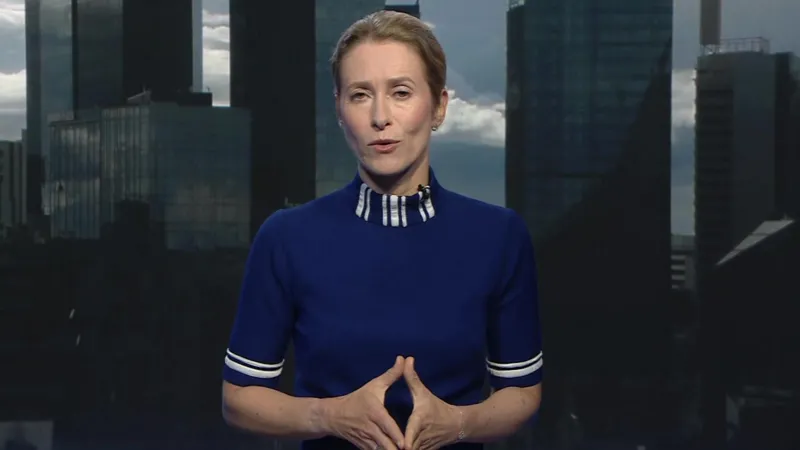The European Union’s top diplomat has cautioned against pressuring Ukraine to cede territory to Russia, describing any such move as a “trap” set by President Vladimir Putin. In her first UK interview since EU leaders joined peace talks hosted by U.S. President Donald Trump, Kaja Kallas warned that allowing Russia to retain Ukrainian land would serve Moscow’s strategic interests rather than pave the way for peace.
The Donbas region in eastern Ukraine has been a focal point of conflict, with Russia’s military actions displacing over 1.5 million Ukrainians over the past decade. Despite proposals from international actors advocating territorial swaps to secure peace, Ukraine has consistently rejected such concessions. Trump, who hosted Russian President Vladimir Putin at a military base in Alaska earlier this month, emphasized the need for “swapping of territories” as part of negotiations.
Kallas, who is on Moscow’s “wanted list,” stressed the importance of “credible and robust” security guarantees for Ukraine, noting that a strong Ukrainian military remains the most effective safeguard. She acknowledged that concrete steps for an international deterrent were still unclear and highlighted the role of coalition member states in determining contributions to security arrangements.
Speaking about the Alaska summit, Kallas criticized Putin’s approach, asserting that the Russian leader “got everything he wanted,” including sanctions relief, while continuing aggressive military actions. She pointed out that Russia had not made a single concession, despite ongoing EU sanctions now in their 19th package aimed at pressuring Moscow to engage seriously in negotiations.
Ukrainian President Volodymyr Zelensky has expressed skepticism regarding Putin’s willingness to negotiate directly, noting that Russia appears to be avoiding necessary leadership talks. Zelensky has urged Western allies to clarify the architecture of security guarantees within seven to ten days, outlining which countries would provide support and when.
Recent Russian airstrikes, including attacks on the western city of Lviv near the Polish border, underscore the ongoing threat. Eleven locations were targeted, killing at least one and injuring more than a dozen. European leaders, including French President Emmanuel Macron and Finnish President Alexander Stubb, have echoed Kallas’ concerns, describing Putin as untrustworthy and unlikely to engage meaningfully in a peace process.
As Ukraine and its allies push for a durable solution, the international community faces the challenge of balancing diplomacy with the firm defense of Ukraine’s territorial integrity.

